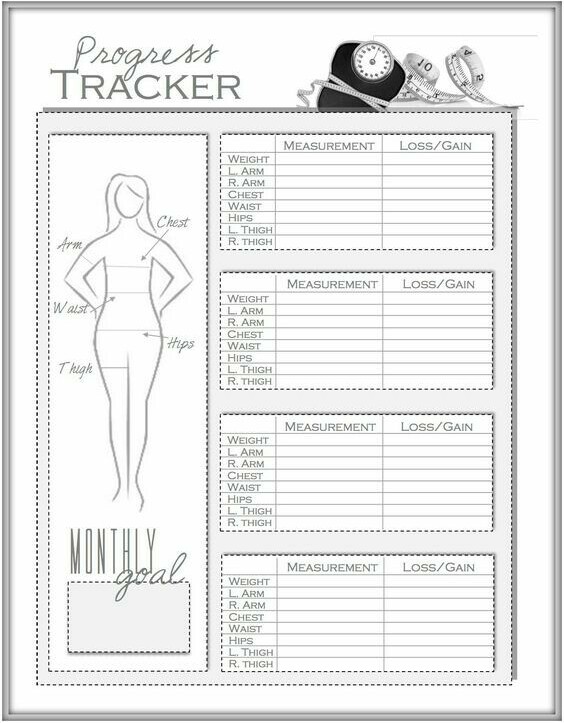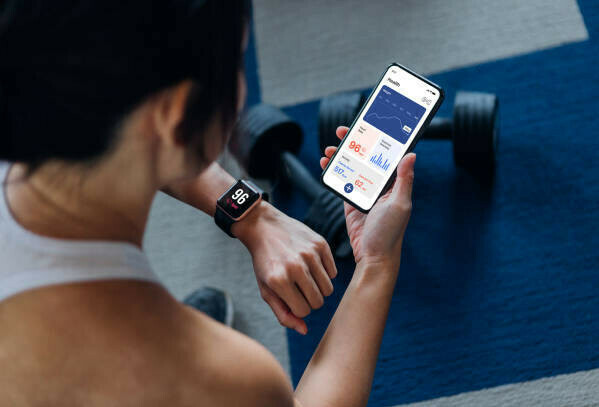IT ONLY MAKES SENSE
It’s unlikely that we would spend money without checking our bank account balances. Nor would we make guesses about our weight or blood pressure. We have scales and blood pressure monitors.
Most of us wouldn’t make important health decisions without seeing our doctors. Or do business with people we don’t know at all. We check things out.
Tracking our exercise routines is important for two reasons:
- We can make assessments of the progress we are making and of the areas where we need improvement.
- It is motivating to see positive progress, which inspires us to continue.
Personally, I keep daily records of my weight to the tenth of a pound, my blood pressure and pulse, the number of my workout sets or cardio times and my calories consumed per each meal.
Is this an unnecessary use of time? Altogether, it takes about 5 minutes per day. The value to me is that I am inclined to post favorable numbers. It keeps me “on track”. It is an ingrained habit.
In my opinion, building good habits is the most important aspect of exercise and of most other pursuits that require discipline. Habits are more important even than motivation, since motivation can lapse at times. Good habits can override a lack of motivation. See my prior post “Habit formation and fitness”.
Of course, it is equally true that bad habits may strengthen our predispositions in the opposite direction.

Temple Gym gives us their thoughts on the benefits of exercise tracking. We can:
- Measure our progress
- Gauge the effectiveness of our exercise routines or diets
- Sustain motivation
- Form healthy habits
- Understand how our lifestyle choices are affecting us
- Make informed decisions on what to do next
- Learn more about our bodies and focus on methods that work for us personally
Tracking our data can also help us to see the progress we have made over a period of time, such as:
- What we weighed last year vs. now
- How our strength or endurance may have changed with a new and different routine
Physical changes are incremental and can’t be appreciated on a day to day basis.
Trackers may be as simple as the one for ladies, shown below.

A personal anecdote – I recently reinjured my right shoulder rotator cuff. This meant a temporary layoff of about half of my usual morning routine. I decided to increase my cardio time on my treadmill. The result was weight loss of a pound or two. This is helpful information. Also, it helps me to change a routine periodically. It refreshes my attitude and prevents boredom or plateaus. See my prior post on “Benefits of daily treadmill walks”.
ACCOUNTABILITY
If we intend to reach a destination, we must have a plan. To reach a goal, we must first set goals that make sense. It doesn’t help us to tell ourselves that we intend to “lose a few pounds next month”. This begs these questions:
- How much is a few?
- Why wait until next month?
Smart goal setting has a smart acronym. Goals are far more likely to be reached when they are:
- Specific
- Measurable
- Achievable
- Realistic
- Time-based
If we set “smart” goals, we only need to be accountable to ourselves for their realization.
The remainder of this post will present various tracking devices that will meet the need for that accountability.

AMAZON
Amazon has an abundance of tracking devices from which to choose. I am an Amazon customer and associate. As an associate, I may use their links to show relevance to my articles. As an affiliate marketer, I may benefit from activity on the links. Please see my upper menu – BECOME AN AFFILIATE MARKETER – for full information on how this works.
I will use links to show examples of low-priced fitness journals and also some more sophisticated wearable tech devices. Each link will give detailed descriptions, pictures, prices and suggestions for other similar or complementary links.
Track your fitness & nutrition – food and workout journal for men and women. Track weight loss, muscle gain and daily nutrition
Fitness & food journal – hard cover, attractive journal. Set big goals and then break them down into monthly milestones.
Fitbit Inspire 3 health and fitness tracker – stress management, workout intensity, sleep tracking. 24/7 heart rate
Garmin Vivosmart 5 fitness tracker – fitness profiles such as fitness age, step tracking, calories burned, intensity minutes and more
3D pedometer – less than $15
Smart fitness ring – measure steps taken, calories burned, heart rate, blood oxygen levels, sleep patterns
Chest strap heart rate monitor
Fitness tracking smart scale – track BMI, heart rate, body fat , muscle and more
Please note – there are MANY choices of all of the above tracker types within Amazon. There are many different prices. Look around.
FINAL THOUGHTS
I really believe that the most valuable aspect of my long exercise journey has been my tracking of daily results. I would have been floundering around aimlessly without a journal or some kind of record of daily activities. This has been more valuable to me than equipment types or literature on physical fitness.
One explanation for this is that I have had the incentive to post good numbers. Not to show to anyone else, but to be accountable to myself.
Please leave me any comments or questions in the “Comments” section below.
Let’s stay active!
You discussed the benefits of tracking exercise. What you said makes perfect sense. Long term success with any fitness programs requires building good habits over time and tracking daily helps to build those habits over time. Without being able to see a “picture” of where one has been and where one is going it is hard to sustain a fitness program over time because it is easy to lose motivation. I personally started my own fitness journey several years ago and I have done it all in my home gym with some home based fitness programs, so I can vouch that what you are saying is true.
I found your article interesting and look forward to reading more of what you have to say about working out at home.
Thanks, Mark! My niche is all about home workouts, so I am glad to have your input and your participation as one who does workouts at home.